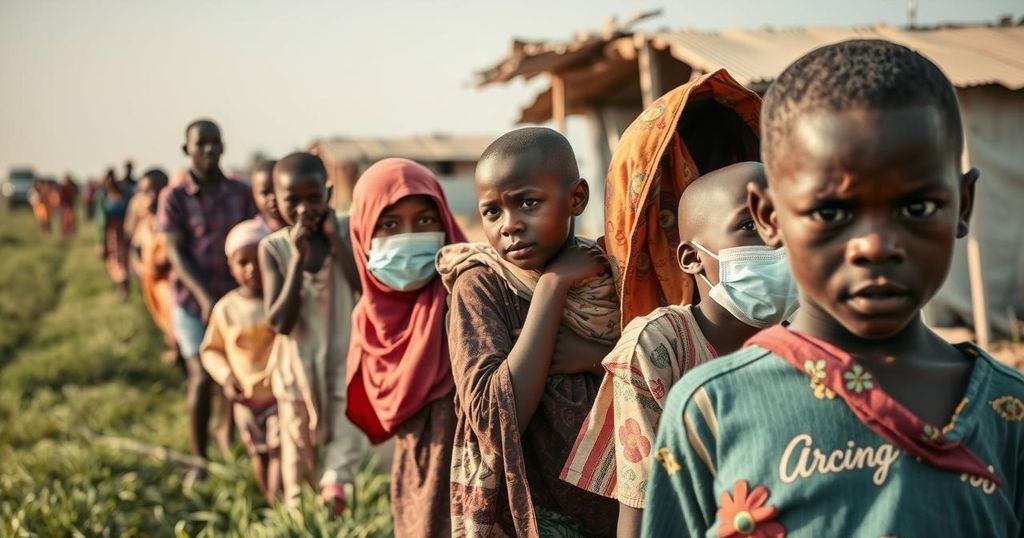Displaced South Sudanese Return Home Following Violence Amid Political Reform Efforts

Amidst recent violence in Western Equatoria State, thousands of South Sudanese have been displaced. UNMISS reports a return to calm, while individuals like Monica Zeferina recount their struggles in seeking safety. Concurrently, political organizations in Northern Bahr el Ghazal are working towards fair elections scheduled for December 2026, following the postponement of earlier dates due to essential preparatory processes.
Thousands of South Sudanese have been compelled to flee their homes in the Western Equatoria State due to rampant violence in Tambura and surrounding areas, as reported by the United Nations Mission in South Sudan (UNMISS). Following a period of unrest, the region has reportedly returned to a state of calm. Many displaced individuals sought refuge near a temporary UNMISS base, enduring significant hardship as they escaped levels of violence that left them fearful for their lives. “We have been hiding in the bush for nearly two weeks,” shared Monica Zeferina, a resident who fled Tambura. She expressed desperation during a conversation with peacekeepers, stating, “We don’t know who these armed men are, killing our people… We cannot leave because we have no transport to take our children to safety. It’s a very difficult situation for us.” Separately, in Northern Bahr el Ghazal State, political parties and civil society organizations are engaging in an initiative aimed at ensuring free and equitable elections within two years. UNMISS facilitated a Political Parties’ Forum in Aweil that included eight political parties and seven civil society groups. The gathering culminated in a signed commitment towards creating an inclusive and participatory civic and political environment for the upcoming 2026 elections. “Now more than ever, an open civic and political space is crucial,” remarked Guang Cong, UNMISS Deputy Special Representative of the Secretary-General, underscoring the necessity for civic participation without obstruction. In September, the South Sudanese government announced the postponement of elections, originally slated for December 2024, to enable essential preparations, such as a national census and the drafting of a permanent constitution. The rescheduled election date is set for December 22, 2026, marking a second postponement since South Sudan’s independence, thus elongating the transitional period that commenced in February 2020.
The violence in South Sudan has escalated in recent weeks, particularly affecting the Western Equatoria State and resulting in significant displacement among local populations. The UNMISS plays a crucial role in monitoring and addressing such crises. Additionally, the political landscape in South Sudan is fraught with challenges, as organizations work toward establishing a conducive environment for future elections. The delays in the electoral schedule and the governmental processes involved reflect ongoing complexities in South Sudan’s political evolution, which has been hindered since its independence in 2011.
In conclusion, the situation in South Sudan remains precarious as thousands grapple with the fallout from recent violence. The UNMISS continues to monitor these developments, while efforts toward political reform and preparation for future elections are underway. The signing of an action plan by political entities marks a significant step, albeit within an ongoing context of instability and humanitarian distress. The commitment to creating a participatory political environment is vital for the nation as it moves toward eventual elections in 2026.
Original Source: newscentral.africa








